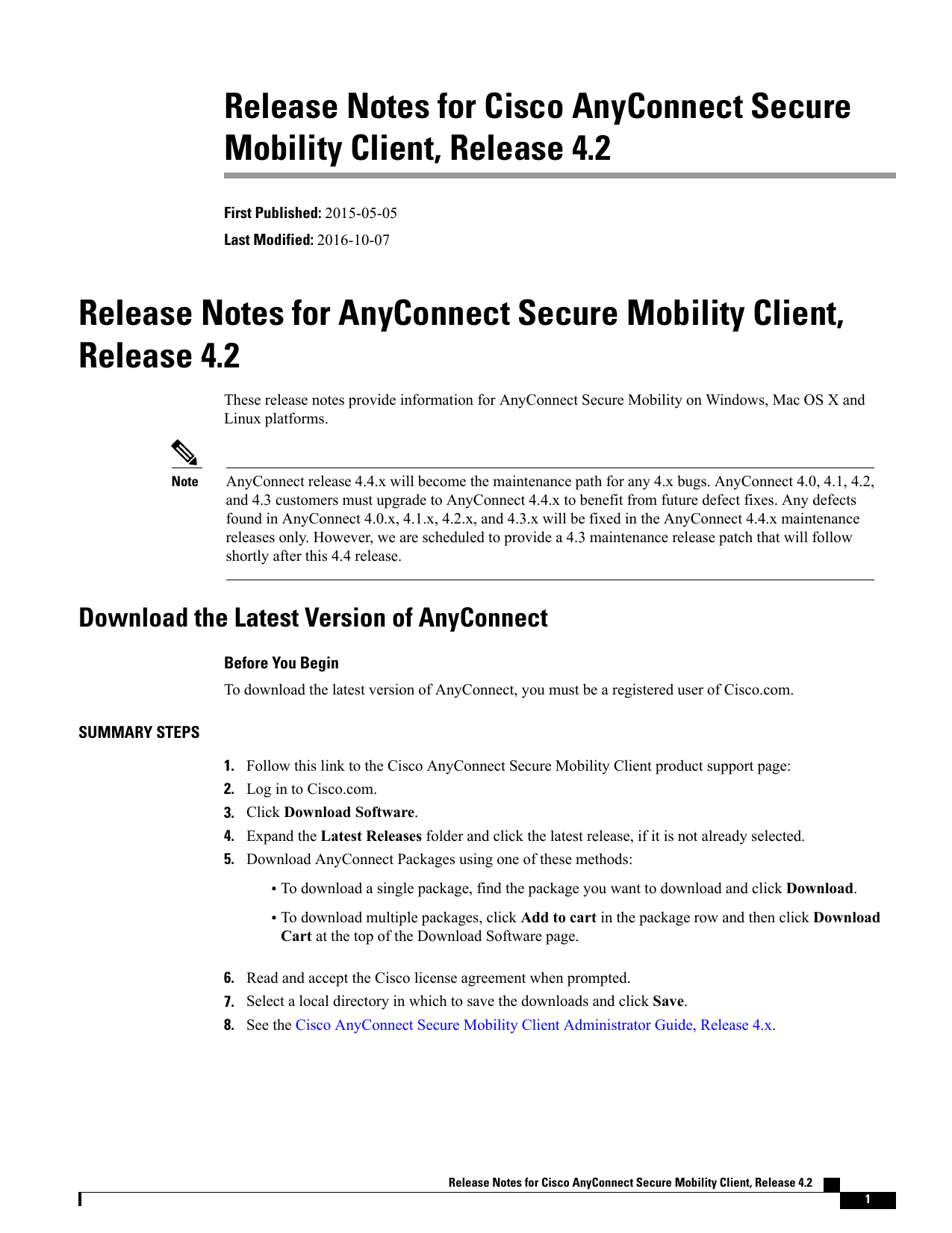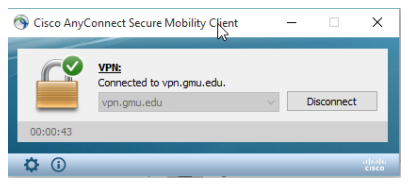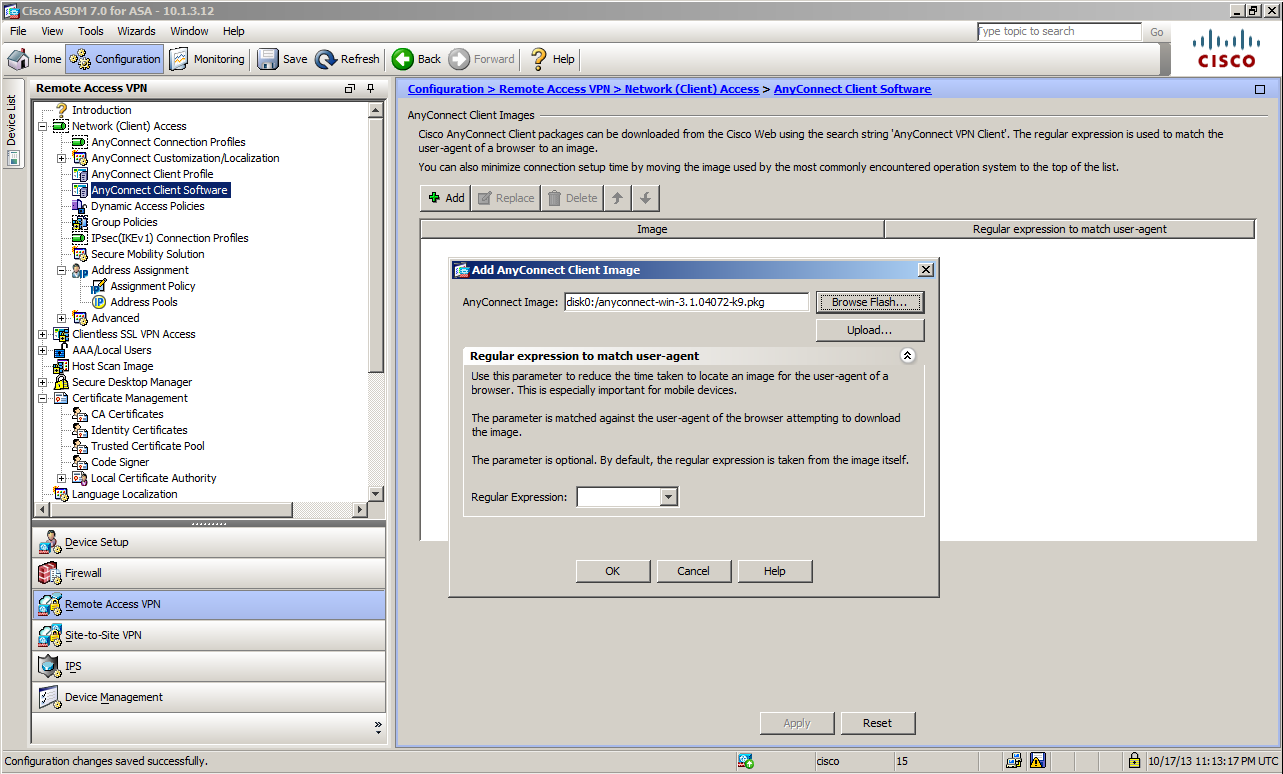For additional information, refer to the AnyConnect configuration guide.
- Cisco Anyconnect Secure Mobility Client For Mac
- Cisco Anyconnect Secure Mobility For Mac
- Cisco Anyconnect Secure Mobility Client Mac Profile
- Cisco Anyconnect Mobility Client Setup
Cisco Anyconnect Secure Mobility Client For Mac
These cookies are necessary for the website to function and cannot be switched off in our systems. They are usually only set in response to actions made by you which amount to a request for services, such as setting your privacy preferences, logging in or filling in forms. Local AnyConnect Profiles XML and profile files are stored locally to the users machine. The location varies based on OS. Windows XP%ALLUSERSPROFILE. AnyConnect Pre-Deployment Package (Linux 64-bit) Login and Service Contract Required. Application Programming Interface API (Linux 64-bit) Login and Service Contract Required. Cisco Anyconnect Vpn Client Mac free download - Cisco VPN Client, Cisco Legacy AnyConnect, Cisco VPN Client Fix for Windows 8.1 and 10, and many more programs. Home » Frequently Asked Questions » Remote Access (HKUVPN) » I cannot install Cisco Anyconnect VPN on Mac OS X as the VPN package is greyed out during installation. What should I do?
Client Download
Unlike the ASA, the MX does not support web deploy or web launch, a feature that allows end users to access a web page on the AnyConnect server to download the AnyConnect client. With the MX, there are download links to the client software on the AnyConnect settings page on the dashboard, however, the download links are only available to the Meraki dashboard admin and not the end user. We do not recommend sharing the down link with users as the link expires after every five minutes of loading the AnyConnect settings page.
We recommend downloading the AnyConnect client directly from Cisco.com as there may be an updated version in the Cisco repository. Refer to the doc for the AnyConnect clientrelease notes. We also recommend using either Meraki Systems Manager, an equivalent MDM solution, or Active Directory to seamlessly push the AnyConnect software client to the end user's device.
AnyConnect requires a VPN client to be installed on a client device. The AnyConnect client for Windows, MacOS, and Linux are available on the Client Connection section of the AnyConnect configuration page on the dashboard and can be downloaded by a Meraki dashboard administrator. Please note, the download links on the Meraki dashboard expire after five minutes. The AnyConnect client for mobile devices can be downloaded via the respective mobile stores. You can also download other versions (must be version 4.8 or higher) of the AnyConnect client from Cisco.com if you have an existing AnyConnect license. AnyConnect web deploy is not supported on the MX at this time.
- Installing the AnyConnect client
- You only need the VPN box checked. Once the client has been installed on the device, open the AnyConnect application and specify the hostname or IP address of the MX (AnyConnect server) you need to connect to.
AnyConnect Profiles
An AnyConnect profile is a crucial piece for ensuring easy configuration of the AnyConnect client software, once installed. The MX does not support the use of custom hostnames for certificates (e.g. vpn.xyz.com). The MX only supports use of the Meraki DDNS hostname for auto-enrollment and use on the MX. With the Meraki DDNS hostname (e.g. mx450-xyuhsygsvge.dynamic-m.com) not as simply as a custom hostname, the need for AnyConnect profiles cannot be overemphasized. Profiles can be used to create hostname aliases, thereby masking the Meraki DDNS with a friendly name for the end user.
Cisco AnyConnect client features are enabled in AnyConnect profiles. These profiles can contain configuration settings like server list, backup server list, authentication time out, etc., for client VPN functionality, in addition to other optional client modules like Network Access Manager, ISE posture, customer experience feedback, and web security. It is important to note that at this time, the Meraki MX does not support other optional client modules that require AnyConnect head-end support. For more details, see AnyConnect profiles.
When a profile is created, it needs to get pushed to the end user's device. There are three ways to do this.
1. Through the AnyConnect server (MX): If profiles are configured on the dashboard, the MX will push the configured profile to the user's device after successful authentication.
2. Through an MDM solution: Systems Manager, an equivalent MDM solution, or Active Directory can be used push files to specific destinations on the end user's device. Profiles can also be pushed to the following paths:
Cisco Anyconnect Secure Mobility For Mac
Windows
%ProgramData%CiscoCisco AnyConnect Secure Mobility ClientProfile

Mac OS X
/opt/cisco/anyconnect/profile

Linux
/opt/cisco/anyconnect/profile
3. Manually: Profiles can also be preloaded manually to the same paths as listed above.
How to Create a Profile
Profiles can be created using the AnyConnect profile editor. The profile editor can be downloaded from the AnyConnect Settings page on dashboard or on cisco.com. Refer to this link for more details on AnyConnect profiles.

Using the profile editor: The profile editor can be downloaded from the AnyConnect Settings page on dashboard or on Cisco.com. The profile editor only runs on Windows operating systems. The screenshot below shows a configured server ton the Server List Entry option.
When configuration is complete, save the profile. It is recommended to use a unique file name to avoid profile overrides by other AnyConnect servers, then you can upload the file to the profile update section on the AnyConnect settings page.
Please note that only VPN profiles are supported on the MX at this time. This means you cannot push NVM, NAM, or Umbrella profiles via the MX.
- Select enable profiles, upload your xml file, and save your configuration
- After a user successfully authenticates, the configured profile gets pushed to the user's device automatically
- The result of the .xml can be seen below, after successful authentication to the AnyConnect server; this gives users the ease of selecting VPN servers on the AnyConnect client
The Meraki DDNS hostname is not easy to remember, therefore end users are not expected to use it directly. Profiles should be used to make connecting to the AnyConnect server easy for end users.
Cisco AnyConnect Secure Mobility Client – Let your employees connect and work with your network from anywhere in the world with high security. The most important thing is to be able to connect from anywhere with acceptable security, and in fact, after connecting, they will not be different from other employees in your company. One of the concerns of corporate executives is the leakage of information from the internal network, Cisco has provided a security solution for this issue called Cisco Anyconnect . This software is a unified agent.
That is, it is installed on various platforms such as Windows, Android, Apple, iOS, Linux and Mac, and offers various security services for connection. What sets Cisco anyconnect software apart from other services is that your IT team will know who is connected to your network and what information they have access to. It can plan the best possible security to protect your company and network information.
Year / Release Date: 2020
Version: 4.9
Developer: Cisco Systems
Developer website: http://www.cisco.com/web/go/anyconnect
Bit depth: 32bit + 64bit
System requirements: Windows: Enough to run a supported operating system on your platform
Description:Cisco AnyConnect Secure Mobility Client – further development of the AnyConnect. Designed to create a vp-n-connection to network devices cisco using SSL protocols, TLS, DTLS. It supports most modern platforms and operating systems, including mobile. It allows you to connect to the Cisco ASA firewalls, or the type of devices based on IOS (with some restrictions). To support the corresponding license is required on devices vp-n cisco.Supported platforms: i386, amd64, powerpc
Files:
anyconnect-android-4.9.00564-release.apk
anyconnect-linux64-4.9.03047-predeploy-k9.tar.gz
anyconnect-linux64-4.9.03047-vpnapi.tar.gz
anyconnect-macos-4.9.03047-vpnapi.tar.gz
anyconnect-win-4.9.03047-core-vpn-lang-predeploy-k9.zip
anyconnect-win-4.9.03047-core-vpn-lang-webdeploy-k9.zip
anyconnect-win-4.9.03047-predeploy-k9.zip
anyconnect-win-4.9.03047-vpnapi.zip
anyconnect-win-arm64-4.9.03047-predeploy-k9.zip
tools-anyconnect-win-4.9.03047-transforms.zip

Supported OS:
Widows All 32 and 64-bit
Linux 32 and 64 bits
Apple MacosX i386
Mac OS X Support
The Web Security Module now supports these Mac OS X operating systems:
• Mac OS X v10.x (x86 32-bit and x64 64 -bit)
Cisco Anyconnect Secure Mobility Client Mac Profile
Twitter Link https://twitter.com/RdWith
Cisco Anyconnect Mobility Client Setup
if you have any question about this video please comment.
Thanks For Watching This Video.
